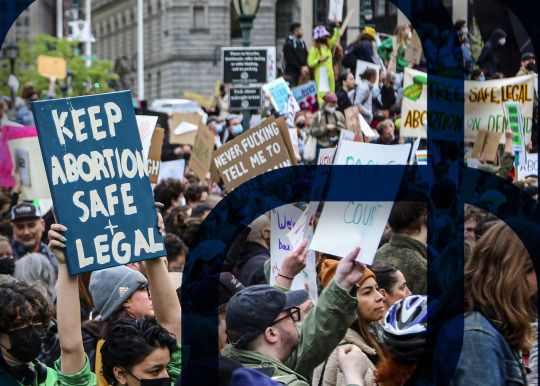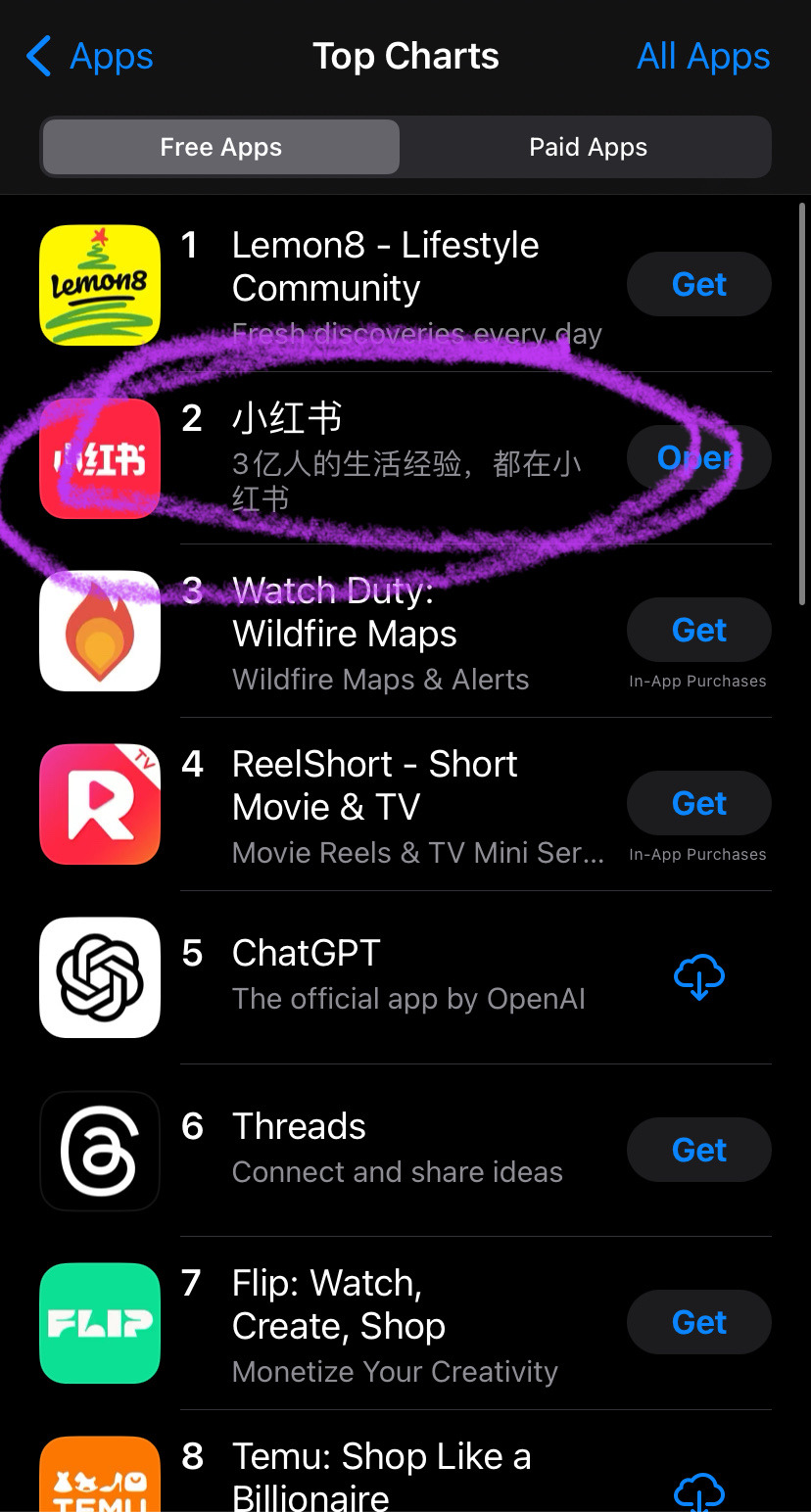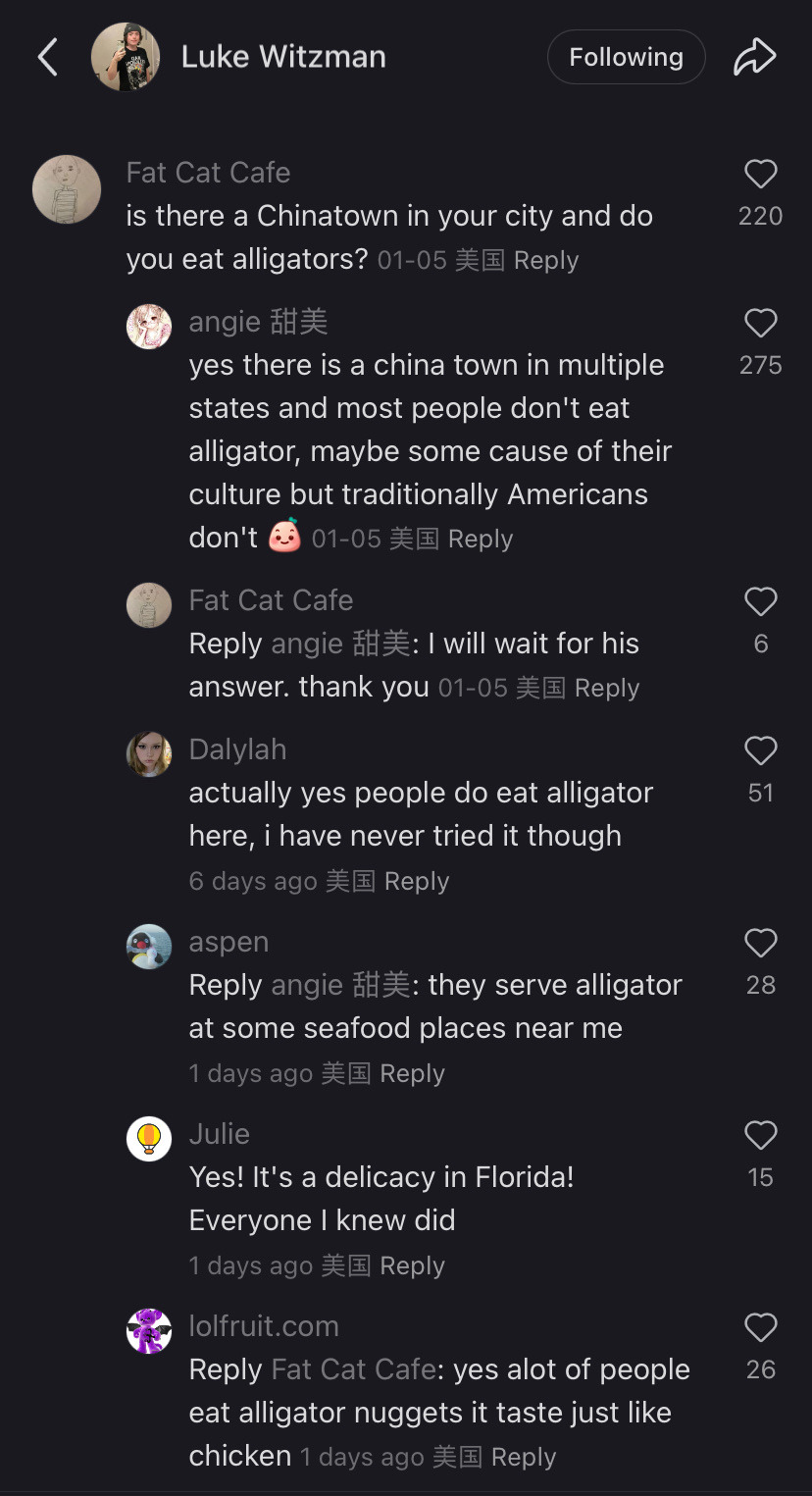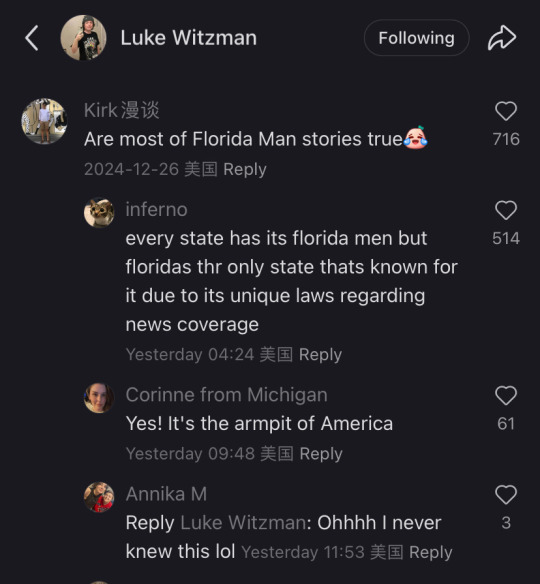#government privatization
Explore tagged Tumblr posts
Photo

U.S. Marshalls Spied on Abortion Protesters Using DATAMINR >
Twitter’s “official partner” monitored the precise time and location of post-Roe demonstrations, internal emails show.
DATAMINR, AN “OFFICIAL PARTNER” of Twitter, alerted a federal law enforcement agency to pro-abortion protests and rallies in the wake of the reversal of Roe v. Wade, according to documents obtained by The Intercept through a Freedom of Information Act request.
Internal emails show that the U.S. Marshals Service received regular alerts from Dataminr, a company that persistently monitors social media for corporate and government clients, about the precise time and location of both ongoing and planned abortion rights demonstrations. The emails show that Dataminr flagged the social media posts of protest organizers, participants, and bystanders, and leveraged Dataminr’s privileged access to the so-called firehose of unrestricted Twitter data to monitor constitutionally protected speech.
[Sam Biddle, The Intercept, May 15 2023]
#twitter#elon musk#musk#social media#abortion#roe v wade#roe vs wade#abortion rights#pro-abortion#abortion access#healthcare#body autonomy#supreme court#politics#us politics#us government#privacy policy#privacy#datamining#data for sale#government privatization#policing#surveillance#free speech#right of assembly#corporate spying#protest#demonstration#activism#activists
20 notes
·
View notes
Text
Nope now it’s at the point that i’m shocked that people off tt don’t know what’s going down. I have no reach but i’ll sum it up anyway.
SCOTUS is hearing on the constitutionality of the ban as tiktok and creators are arguing that it is a violation of our first amendment rights to free speech, freedom of the press and freedom to assemble.
SCOTUS: tiktok bad, big security concern because china bad!
Tiktok lawyers: if china is such a concern why are you singling us out? Why not SHEIN or temu which collect far more information and are less transparent with their users?
SCOTUS (out loud): well you see we don’t like how users are communicating with each other, it’s making them more anti-american and china could disseminate pro china propaganda (get it? They literally said they do not like how we Speak or how we Assemble. Independent journalists reach their audience on tt meaning they have Press they want to suppress)
Tiktok users: this is fucking bullshit i don’t want to lose this community what should we do? We don’t want to go to meta or x because they both lobbied congress to ban tiktok (free market capitalism amirite? Paying off your local congressmen to suppress the competition is totally what the free market is about) but nothing else is like TikTok
A few users: what about xiaohongshu? It’s the Chinese version of tiktok (not quite, douyin is the chinese tiktok but it’s primarily for younger users so xiaohongshu was chosen)
16 hours later:

Tiktok as a community has chosen to collectively migrate TO a chinese owned app that is purely in Chinese out of utter spite and contempt for meta/x and the gov that is backing them.
My fyp is a mix of “i would rather mail memes to my friends than ever return to instagram reels” and “i will xerox my data to xi jinping myself i do not care i share my ss# with 5 other people anyway” and “im just getting ready for my day with my chinese made coffee maker and my Chinese made blowdryer and my chinese made clothing and listening to a podcast on my chinese made phone and get in my car running on chinese manufactured microchips but logging into a chinese social media? Too much for our gov!” etc.
So the government was scared that tiktok was creating a sense of class consciousness and tried to kill it but by doing so they sent us all to xiaohongshu. And now? Oh it’s adorable seeing this gov-manufactured divide be crossed in such a way.







This is adorable and so not what they were expecting. Im sure they were expecting a reluctant return to reels and shorts to fill the void but tiktokers said fuck that, we will forge connections across the world. Who you tell me is my enemy i will make my friend. That’s pretty damn cool.
#tiktok ban#xiaohongshu#the great tiktok migration of 2025#us politics#us government#scotus#ftr tiktok is owned primarily by private investors and is not operated out of china#and all us data is stored on servers here in the us#tiktok also employs 7000 us employees to maintain the US side of operations#like they’re just lying to get us to shut up about genocide and corruption#so fuck it we’ll go spill all the tea to ears that wanna hear it cause this country is not what its cracked up to be#we been lied to and the rest of the world has been lied to#if scotus bans it tomorrow i can’t wait for their finding out#rednote
42K notes
·
View notes
Text
Al coming back from his travels: Xing was great! I've learned so much about alkahestry, and I think we're really making progress and getting Jerso and Zampano's bodies back! It was really nice to see Mei, and Ling is doing a great job as emperor, and I even got to visit some of Xing's neighbors to the east! I feel like I'm learning more about alchemy and alkahestry every day
Ed coming back from his travels: I Have Been Banned From Five Countries
#fma#blatantly stealing this joke from my sibling because it made me laugh so hard on our call#fmab#alphonse elric#edward elric#even without his alchemy and military rank ed still manages to cause trouble wherever he goes#roy calling on a private line: edward if you cause another international incident i swear to god I am putting you on house arrest#ed minutes away from breaking into a government building in creta: I'd like to see you try#al accomplishes so much and ed is very proud of him but unfortunately ed is fundamentally a gremlin that is a magnet for trouble#fma posting
4K notes
·
View notes
Text


Source
#health#health care#news#current events#private health insurance#Medicare for all#capitalism#universal healthcare#government#the left#progressive
370 notes
·
View notes
Text
you know what else fucks me up about the US election? one of the things that has left me reeling in bewilderment and grief this month?
I'm a scientist, y'all.
That means that I am, like most American research scientists, a federal contractor. (Possibly employee. It's confusing, and it fucks with my taxes being a postdoctoral researcher.) I get paid because someone, in the long run ideally me, makes a really, really detailed pitch to one of several federal grant agencies that the nation would really be missing out if I couldn't follow up on these thoughts and find concrete evidence about whether or not I'm right.
Currently, my personal salary is dependent on a whole department of scientists convincing one of the largest and most powerful granting agencies that they have a program that is really good at training scientists that can think deeply about the priorities of the agency. Those priorities are defined by the guy who runs the agency, and he gets to hire whatever qualified people he wants. That guy? The Presidential Administration picks that one. That's how federal agencies get staffed: the President's administration nominates them.
All of the heads of these agencies are personally nominated by the president and their administration. They are people of enormous power whose job is to administer million-dollar grants to the scientists competing urgently for limited funds. A million dollars often doesn't go farther than a couple of years when it's intended to pay for absolutely everything to do with a particular pitch, including salaries of your trainees, all materials, travel expenses, promoting the work among other researchers, all of it—so most smart American researchers are working fervently on grants all the time.
The next director of the NIH will be a Trump appointee, if he notices and thinks to appoint one. NSF, too; that's the group that funds your ecology and your astroscience and your experimental mathematics and physics and chemistry, the stuff that doesn't have industry funding and industry priorities. USDA. DOE, that's who does a lot of the climate change mitigation and renewable energy source research, they'll just be lucky if they can do anything again because Trump nigh gutted them last time.
Right now, I am working on the very tail end of a grant's funding and I am scurrying to make sure I stay employed. So I'm thinking very closely about federal agency priorities, okay? And I'm thinking that the funding climate for science is going to get a lot fucking leaner. I'm seeing what the American people think of scientists, and about whether my job is worth doing. It's been a lean twelve years in this gig, okay? Every time the federal government gets fucked up, that impacts my job, it means that I have to hustle even harder to get grants in that let me support myself—and, if I have any trainees, their budding careers as well!—to patch over the lean times as much as we can.
So I've been reeling this week thinking about how funding agency priorities are going to change. I work on sex differences in motivation, so let me tell you, the politics reading this one for my next pitch are going to be fun. I'm working on a submission for an explicitly DEI-oriented five year grant with a cycle ending in February, so that's going to be an exercise in hoping that the agency employees at the middle levels (the ones that know how to get things done which can't be replaced immediately with yes men) can buffer the decisions of those big bosses long enough to let that program continue to exist a little while longer.
Ah, Christ, he promised Health & Human Services (which houses the NIH) to RFK, didn't he? We'll see how that pans out.
I keep seeing people calling for more governmental shutdowns on the left now, and it makes me want to scream. The government being gridlocked means the funding that researchers like me need doesn't come, okay? When the DOE can't say fucking "climate change," when the USDA hemorrhages its workers when the agency is dragged halfway across the country, when I watch a major Texan House rep stake his career on trying to destroy the NSF, I think: this is what you people think of us. I think: how little scientists are valued as public workers. Why am I working this hard again?
This is why I described voting as harm reduction. Even if two candidates are "the same" on one thing you care about, they probably aren't the same level of bad on everything. Your task is to figure out the best person to do the job. It's not about a fucking tribalist horse race. A vote is your opinion on a job interview, you fucks. We have to work with this person.
Anyway, I'm probably going to go back to shaking quietly in despair for a little longer and then pick myself up and hit the grind again. If I'm fast, I might still get the grant in this miserable climate if I run, and I might get to actually keep on what I'm trying to do, which is bring research on sex differences, neurodivergence and energy balance as informed by non-binary gender perspectives and disability theory to neuroscience.
Fuck.
#us politics#science#biology#career#probably my last word on the subject for some time#but fuck yall when the government goes down i don't get paid and i have to go do something different#which generally is beholden to the interests of some rich private fucker#I'm just so fucking tired of feeling like i can relax and getting slammed in the face
577 notes
·
View notes
Text
"College is NOT a scam, I have a degree and got a job right out of school"
"What's your job?"
"I work in the admissions department at the college I went to"

133 notes
·
View notes
Text

#tiktok#donald trump#fuck trump#us politics#trump#president trump#trump administration#us government#trump is the enemy of the people#rachel maddow#tim walz#governor tim walz#department of education#us department of education#education#fuck donald trump#trump is a threat to democracy#public education#public school#private education
84 notes
·
View notes
Text
here is a free dog tip: when you get your dog a name tag with emergency info on it, include the microchip number on the tag. microchips can sometimes shift around and get lost or stop working and having redundant ways to look it up is helpful. i got custom dog tags (the military kind) stamped for my dog because they fit a lot of information. there are two phone numbers to contact me, my address, and his microchip number on the actual tag. having your dog's name on the tag is irrelevant, you can skip that part
also, next time you take your pet to a vet appt, ask the vet to please scan the chip to see if the chip is still working. like I said, chips are little and can shift around or stop working. if your chip breaks and your pet gets lost, it will be harder to find them. you should check to see if it works (it just takes a second) and if not, get a new chip asap
#dogs#blog#churchgrim#the government should run microchip databases but as far as i know all the chip registries are private#which is bad because it means they can go out of business AND youre giving your info to corps#but i dont think there's any way to avoid it#correct me if i'm wrong
69 notes
·
View notes
Text

I just called my representatives and so can you!
Even if no one answered, I was still able to leave a voicemail which can count massively. I normally hate doing phone calls but I still did it!
And if the voicemail box is full, you can always email!
I will even say that I had issues reaching one of them. All I had to do was try the number for the local office and it worked.
I used 5 Calls to help me find my reps and get a script for what to say in regards to the Musk takeover. Things are dire and its up to us to hold our reps accountable to do something about it and contacting them directly is the best way to do it.
#current events#call your reps#call your senators#5 calls#elon musk#elon musk takeover#us politics#make your voice heard#please we cant leave muskrat doing shenanigans with our private information#asters ramblings#asters psa#this has been a psa#psa#us government
40 notes
·
View notes
Text

i need to stop crying about this election result [x]
#kai rambles#britposting#britpol#british politics#uk politics#uk general election#labour#fuck the tories#fuck the tories!!!!!#keir starmer#i know he's not perfect but my god#imagine having a government that represents the people#sutton trust#private school#private education
132 notes
·
View notes
Text
In defense of bureaucratic competence

Sure, sometimes it really does make sense to do your own research. There's times when you really do need to take personal responsibility for the way things are going. But there's limits. We live in a highly technical world, in which hundreds of esoteric, potentially lethal factors impinge on your life every day.
You can't "do your own research" to figure out whether all that stuff is safe and sound. Sure, you might be able to figure out whether a contractor's assurances about a new steel joist for your ceiling are credible, but after you do that, are you also going to independently audit the software in your car's antilock brakes?
How about the nutritional claims on your food and the sanitary conditions in the industrial kitchen it came out of? If those turn out to be inadequate, are you going to be able to validate the medical advice you get in the ER when you show up at 3AM with cholera? While you're trying to figure out the #HIPAAWaiver they stuck in your hand on the way in?
40 years ago, Ronald Reagan declared war on "the administrative state," and "government bureaucrats" have been the favored bogeyman of the American right ever since. Even if Steve Bannon hasn't managed to get you to froth about the "Deep State," there's a good chance that you've griped about red tape from time to time.
Not without reason, mind you. The fact that the government can make good rules doesn't mean it will. When we redid our kitchen this year, the city inspector added a bunch of arbitrary electrical outlets to the contractor's plans in places where neither we, nor any future owner, will every need them.
But the answer to bad regulation isn't no regulation. During the same kitchen reno, our contractor discovered that at some earlier time, someone had installed our kitchen windows without the accompanying vapor-barriers. In the decades since, the entire structure of our kitchen walls had rotted out. Not only was the entire front of our house one good earthquake away from collapsing – there were two half rotted verticals supporting the whole thing – but replacing the rotted walls added more than $10k to the project.
In other words, the problem isn't too much regulation, it's the wrong regulation. I want our city inspectors to make sure that contractors install vapor barriers, but to not demand superfluous electrical outlets.
Which raises the question: where do regulations come from? How do we get them right?
Regulation is, first and foremost, a truth-seeking exercise. There will never be one obvious answer to any sufficiently technical question. "Should this window have a vapor barrier?" is actually a complex question, needing to account for different window designs, different kinds of barriers, etc.
To make a regulation, regulators ask experts to weigh in. At the federal level, expert agencies like the DoT or the FCC or HHS will hold a "Notice of Inquiry," which is a way to say, "Hey, should we do something about this? If so, what should we do?"
Anyone can weigh in on these: independent technical experts, academics, large companies, lobbyists, industry associations, members of the public, hobbyist groups, and swivel-eyed loons. This produces a record from which the regulator crafts a draft regulation, which is published in something called a "Notice of Proposed Rulemaking."
The NPRM process looks a lot like the NOI process: the regulator publishes the rule, the public weighs in for a couple of rounds of comments, and the regulator then makes the rule (this is the federal process; state regulation and local ordinances vary, but they follow a similar template of collecting info, making a proposal, collecting feedback and finalizing the proposal).
These truth-seeking exercises need good input. Even very competent regulators won't know everything, and even the strongest theoretical foundation needs some evidence from the field. It's one thing to say, "Here's how your antilock braking software should work," but you also need to hear from mechanics who service cars, manufacturers, infosec specialists and drivers.
These people will disagree with each other, for good reasons and for bad ones. Some will be sincere but wrong. Some will want to make sure that their products or services are required – or that their competitors' products and services are prohibited.
It's the regulator's job to sort through these claims. But they don't have to go it alone: in an ideal world, the wrong people will be corrected by other parties in the docket, who will back up their claims with evidence.
So when the FCC proposes a Net Neutrality rule, the monopoly telcos and cable operators will pile in and insist that this is technically impossible, that there is no way to operate a functional ISP if the network management can't discriminate against traffic that is less profitable to the carrier. Now, this unity of perspective might reflect a bedrock truth ("Net Neutrality can't work") or a monopolists' convenient lie ("Net Neutrality is less profitable for us").
In a competitive market, there'd be lots of counterclaims with evidence from rivals: "Of course Net Neutrality is feasible, and here are our server logs to prove it!" But in a monopolized markets, those counterclaims come from micro-scale ISPs, or academics, or activists, or subscribers. These counterclaims are easy to dismiss ("what do you know about supporting 100 million users?"). That's doubly true when the regulator is motivated to give the monopolists what they want – either because they are hoping for a job in the industry after they quit government service, or because they came out of industry and plan to go back to it.
To make things worse, when an industry is heavily concentrated, it's easy for members of the ruling cartel – and their backers in government – to claim that the only people who truly understand the industry are its top insiders. Seen in that light, putting an industry veteran in charge of the industry's regulator isn't corrupt – it's sensible.
All of this leads to regulatory capture – when a regulator starts defending an industry from the public interest, instead of defending the public from the industry. The term "regulatory capture" has a checkered history. It comes out of a bizarre, far-right Chicago School ideology called "Public Choice Theory," whose goal is to eliminate regulation, not fix it.
In Public Choice Theory, the biggest companies in an industry have the strongest interest in capturing the regulator, and they will work harder – and have more resources – than anyone else, be they members of the public, workers, or smaller rivals. This inevitably leads to capture, where the state becomes an arm of the dominant companies, wielded by them to prevent competition:
https://pluralistic.net/2022/06/05/regulatory-capture/
This is regulatory nihilism. It supposes that the only reason you weren't killed by your dinner, or your antilock brakes, or your collapsing roof, is that you just got lucky – and not because we have actual, good, sound regulations that use evidence to protect us from the endless lethal risks we face. These nihilists suppose that making good regulation is either a myth – like ancient Egyptian sorcery – or a lost art – like the secret to embalming Pharaohs.
But it's clearly possible to make good regulations – especially if you don't allow companies to form monopolies or cartels. What's more, failing to make public regulations isn't the same as getting rid of regulation. In the absence of public regulation, we get private regulation, run by companies themselves.
Think of Amazon. For decades, the DoJ and FTC sat idly by while Amazon assembled and fortified its monopoly. Today, Amazon is the de facto e-commerce regulator. The company charges its independent sellers 45-51% in junk fees to sell on the platform, including $31b/year in "advertising" to determine who gets top billing in your searches. Vendors raise their Amazon prices in order to stay profitable in the face of these massive fees, and if they don't raise their prices at every other store and site, Amazon downranks them to oblivion, putting them out of business.
This is the crux of the FTC's case against Amazon: that they are picking winners and setting prices across the entire economy, including at every other retailer:
https://pluralistic.net/2023/04/25/greedflation/#commissar-bezos
The same is true for Google/Facebook, who decide which news and views you encounter; for Apple/Google, who decide which apps you can use, and so on. The choice is never "government regulation" or "no regulation" – it's always "government regulation" or "corporate regulation." You either live by rules made in public by democratically accountable bureaucrats, or rules made in private by shareholder-accountable executives.
You just can't solve this by "voting with your wallet." Think about the problem of robocalls. Nobody likes these spam calls, and worse, they're a vector for all kinds of fraud. Robocalls are mostly a problem with federation. The phone system is a network-of-networks, and your carrier is interconnected with carriers all over the world, sometimes through intermediaries that make it hard to know which network a call originates on.
Some of these carriers are spam-friendly. They make money by selling access to spammers and scammers. Others don't like spam, but they have lax or inadequate security measures to prevent robocalls. Others will simply be targets of opportunity: so large and well-resourced that they are irresistible to bad actors, who continuously probe their defenses and exploit overlooked flaws, which are quickly patched.
To stem the robocall tide, your phone company will have to block calls from bad actors, put sloppy or lazy carriers on notice to shape up or face blocks, and also tell the difference between good companies and bad ones.
There's no way you can figure this out on your own. How can you know whether your carrier is doing a good job at this? And even if your carrier wants to do this, only the largest, most powerful companies can manage it. Rogue carriers won't give a damn if some tiny micro-phone-company threatens them with a block if they don't shape up.
This is something that a large, powerful government agency is best suited to addressing. And thankfully, we have such an agency. Two years ago, the FCC demanded that phone companies submit plans for "robocall mitigation." Now, it's taking action:
https://arstechnica.com/tech-policy/2023/10/telcos-filed-blank-robocall-plans-with-fcc-and-got-away-with-it-for-2-years/
Specifically, the FCC has identified carriers – in the US and abroad – with deficient plans. Some of these plans are very deficient. National Cloud Communications of Texas sent the FCC a Windows Printer Test Page. Evernex (Pakistan) sent the FCC its "taxpayer profile inquiry" from a Pakistani state website. Viettel (Vietnam) sent in a slide presentation entitled "Making Smart Cities Vision a Reality." Canada's Humbolt VoIP sent an "indiscernible object." DomainerSuite submitted a blank sheet of paper scrawled with the word "NOTHING."
The FCC has now notified these carriers – and others with less egregious but still deficient submissions – that they have 14 days to fix this or they'll be cut off from the US telephone network.
This is a problem you don't fix with your wallet, but with your ballot. Effective, public-interest-motivated FCC regulators are a political choice. Trump appointed the cartoonishly evil Ajit Pai to run the FCC, and he oversaw a program of neglect and malice. Pai – a former Verizon lawyer – dismantled Net Neutrality after receiving millions of obviously fraudulent comments from stolen identities, lying about it, and then obstructing the NY Attorney General's investigation into the matter:
https://pluralistic.net/2021/08/31/and-drown-it/#starve-the-beast
The Biden administration has a much better FCC – though not as good as it could be, thanks to Biden hanging Gigi Sohn out to dry in the face of a homophobic smear campaign that ultimately led one of the best qualified nominees for FCC commissioner to walk away from the process:
https://pluralistic.net/2022/12/15/useful-idiotsuseful-idiots/#unrequited-love
Notwithstanding the tragic loss of Sohn's leadership in this vital agency, Biden's FCC – and its action on robocalls – illustrates the value of elections won with ballots, not wallets.
Self-regulation without state regulation inevitably devolves into farce. We're a quarter of a century into the commercial internet and the US still doesn't have a modern federal privacy law. The closest we've come is a disclosure rule, where companies can make up any policy they want, provided they describe it to you.
It doesn't take a genius to figure out how to cheat on this regulation. It's so simple, even a Meta lawyer can figure it out – which is why the Meta Quest VR headset has a privacy policy isn't merely awful, but long.
It will take you five hours to read the whole document and discover how badly you're being screwed. Go ahead, "do your own research":
https://foundation.mozilla.org/en/privacynotincluded/articles/annual-creep-o-meter/
The answer to bad regulation is good regulation, and the answer to incompetent regulators is competent ones. As Michael Lewis's Fifth Risk (published after Trump filled the administrative agencies with bootlickers, sociopaths and crooks) documented, these jobs demand competence:
https://memex.craphound.com/2018/11/27/the-fifth-risk-michael-lewis-explains-how-the-deep-state-is-just-nerds-versus-grifters/
For example, Lewis describes how a Washington State nuclear waste facility created as part of the Manhattan Project endangers the Columbia River, the source of 8 million Americans' drinking water. The nuclear waste cleanup is projected to take 100 years and cost 100 billion dollars. With stakes that high, we need competent bureaucrats overseeing the job.
The hacky conservative jokes comparing every government agency to the DMV are not descriptive so much as prescriptive. By slashing funding, imposing miserable working conditions, and demonizing the people who show up for work anyway, neoliberals have chased away many good people, and hamstrung those who stayed.
One of the most inspiring parts of the Biden administration is the large number of extremely competent, extremely principled agency personnel he appointed, and the speed and competence they've brought to their roles, to the great benefit of the American public:
https://pluralistic.net/2022/10/18/administrative-competence/#i-know-stuff
But leaders can only do so much – they also need staff. 40 years of attacks on US state capacity has left the administrative state in tatters, stretched paper-thin. In an excellent article, Noah Smith describes how a starveling American bureaucracy costs the American public a fortune:
https://www.noahpinion.blog/p/america-needs-a-bigger-better-bureaucracy
Even stripped of people and expertise, the US government still needs to get stuff done, so it outsources to nonprofits and consultancies. These are the source of much of the expense and delay in public projects. Take NYC's Second Avenue subway, a notoriously overbudget and late subway extension – "the most expensive mile of subway ever built." Consultants amounted to 20% of its costs, double what France or Italy would have spent. The MTA used to employ 1,600 project managers. Now it has 124 of them, overseeing $20b worth of projects. They hand that money to consultants, and even if they have the expertise to oversee the consultants' spending, they are stretched too thin to do a good job of it:
https://slate.com/business/2023/02/subway-costs-us-europe-public-transit-funds.html
When a public agency lacks competence, it ends up costing the public more. States with highly expert Departments of Transport order better projects, which need fewer changes, which adds up to massive costs savings and superior roads:
https://papers.ssrn.com/sol3/papers.cfm?abstract_id=4522676
Other gaps in US regulation are plugged by nonprofits and citizen groups. Environmental rules like NEPA rely on the public to identify and object to environmental risks in public projects, from solar plants to new apartment complexes. NEPA and its state equivalents empower private actors to sue developers to block projects, even if they satisfy all environmental regulations, leading to years of expensive delay.
The answer to this isn't to dismantle environmental regulations – it's to create a robust expert bureaucracy that can enforce them instead of relying on NIMBYs. This is called "ministerial approval" – when skilled government workers oversee environmental compliance. Predictably, NIMBYs hate ministerial approval.
Which is not to say that there aren't problems with trusting public enforcers to ensure that big companies are following the law. Regulatory capture is real, and the more concentrated an industry is, the greater the risk of capture. We are living in a moment of shocking market concentration, thanks to 40 years of under-regulation:
https://www.openmarketsinstitute.org/learn/monopoly-by-the-numbers
Remember that five-hour privacy policy for a Meta VR headset? One answer to these eye-glazing garbage novellas presented as "privacy policies" is to simply ban certain privacy-invading activities. That way, you can skip the policy, knowing that clicking "I agree" won't expose you to undue risk.
This is the approach that Bennett Cyphers and I argue for in our EFF white-paper, "Privacy Without Monopoly":
https://www.eff.org/wp/interoperability-and-privacy
After all, even the companies that claim to be good for privacy aren't actually very good for privacy. Apple blocked Facebook from spying on iPhone owners, then sneakily turned on their own mass surveillance system, and lied about it:
https://pluralistic.net/2022/11/14/luxury-surveillance/#liar-liar
But as the European experiment with the GDPR has shown, public administrators can't be trusted to have the final word on privacy, because of regulatory capture. Big Tech companies like Google, Apple and Facebook pretend to be headquartered in corporate crime havens like Ireland and Luxembourg, where the regulators decline to enforce the law:
https://pluralistic.net/2023/05/15/finnegans-snooze/#dirty-old-town
It's only because of the GPDR has a private right of action – the right of individuals to sue to enforce their rights – that we're finally seeing the beginning of the end of commercial surveillance in Europe:
https://www.eff.org/deeplinks/2022/07/americans-deserve-more-current-american-data-privacy-protection-act
It's true that NIMBYs can abuse private rights of action, bringing bad faith cases to slow or halt good projects. But just as the answer to bad regulations is good ones, so too is the answer to bad private rights of action good ones. SLAPP laws have shown us how to balance vexatious litigation with the public interest:
https://www.rcfp.org/resources/anti-slapp-laws/
We must get over our reflexive cynicism towards public administration. In my book The Internet Con, I lay out a set of public policy proposals for dismantling Big Tech and putting users back in charge of their digital lives:
https://www.versobooks.com/products/3035-the-internet-con
The most common objection I've heard since publishing the book is, "Sure, Big Tech has enshittified everything great about the internet, but how can we trust the government to fix it?"
We've been conditioned to think that lawmakers are too old, too calcified and too corrupt, to grasp the technical nuances required to regulate the internet. But just because Congress isn't made up of computer scientists, it doesn't mean that they can't pass good laws relating to computers. Congress isn't full of microbiologists, but we still manage to have safe drinking water (most of the time).
You can't just "do the research" or "vote with your wallet" to fix the internet. Bad laws – like the DMCA, which bans most kinds of reverse engineering – can land you in prison just for reconfiguring your own devices to serve you, rather than the shareholders of the companies that made them. You can't fix that yourself – you need a responsive, good, expert, capable government to fix it.
We can have that kind of government. It'll take some doing, because these questions are intrinsically hard to get right even without monopolies trying to capture their regulators. Even a president as flawed as Biden can be pushed into nominating good administrative personnel and taking decisive, progressive action:
https://doctorow.medium.com/joe-biden-is-headed-to-a-uaw-picket-line-in-detroit-f80bd0b372ab?sk=f3abdfd3f26d2f615ad9d2f1839bcc07
Biden may not be doing enough to suit your taste. I'm certainly furious with aspects of his presidency. The point isn't to lionize Biden – it's to point out that even very flawed leaders can be pushed into producing benefit for the American people. Think of how much more we can get if we don't give up on politics but instead demand even better leaders.
My next novel is The Lost Cause, coming out on November 14. It's about a generation of people who've grown up under good government – a historically unprecedented presidency that has passed the laws and made the policies we'll need to save our species and planet from the climate emergency:
https://us.macmillan.com/books/9781250865939/the-lost-cause
The action opens after the pendulum has swung back, with a new far-right presidency and an insurgency led by white nationalist militias and their offshore backers – seagoing anarcho-capitalist billionaires.
In the book, these forces figure out how to turn good regulations against the people they were meant to help. They file hundreds of simultaneous environmental challenges to refugee housing projects across the country, blocking the infill building that is providing homes for the people whose homes have been burned up in wildfires, washed away in floods, or rendered uninhabitable by drought.
I don't want to spoil the book here, but it shows how the protagonists pursue a multipronged defense, mixing direct action, civil disobedience, mass protest, court challenges and political pressure to fight back. What they don't do is give up on state capacity. When the state is corrupted by wreckers, they claw back control, rather than giving up on the idea of a competent and benevolent public system.

If you'd like an essay-formatted version of this post to read or share, here's a link to it on pluralistic.net, my surveillance-free, ad-free, tracker-free blog:
https://pluralistic.net/2023/10/23/getting-stuff-done/#praxis
#pluralistic#nerd harder#private right of action#privacy#robocalls#fcc#administrative competence#noah smith#spam#regulatory capture#public choice theory#nimbyism#the lost cause#the internet con#evidence based policy#small government#transit#praxis#antitrust#trustbusting#monopoly
382 notes
·
View notes
Text
the 2020s political argument for unionization is that the only activity/location that rivals the phone in terms of time spent is the workplace. once they clock out they are lost to phone
#the thing with labor is that organizing used to be much harder. history provides a perspective. it could be worse.#source: it has been#maybe sean obrien will get a return on his turncoat investment. i don't know. whatever#if he does it won't matter electorally because nobody gaf about the 6% of private sector workers who are in unions#either way that high rate of public approval for unions aint nothing but political capital to burn. TO ME#treatlers will not be happy with an organized amazon. let them be miserable!#let them order the struggle sandwich with dire sauce.#i believe in the power of self interest.#i mean only the deep south bothers with anti-union messaging from government anymore anyway#so like we gotta Lock In#like 👽what is the next step of the operation👽
27 notes
·
View notes
Text



something about the Platy chasing Jeremy for a bromance was just wildly entertaining to me. bringing back those vibes with more text posts
#I feel like this was the dynamic for a bit#private recording 1#dooleynotedgaming#jeremy dooley#aplatypuss#I’m not putting Platy’d government name. you cannot make me#Jeremy and platy#text posts#private recording 1 memes
35 notes
·
View notes
Text

41 notes
·
View notes
Text
#public schools#private schools#funding#budget#budgets#budgeting#education#America#american education system#education system#school#kids#children#youth#educators#government funding#local government#state government#federal government#education is important#fund education#reality#politics#democrats#republicans#independent#capitalism#political games#kentucky#andy beshear
70 notes
·
View notes
Text
need a fic where a leftist peter parker radicalizes tony stark and he uses his money to set up universal basic income & healthcare
#i'm afraid to tag this#but here goes#don't make me close my asks i stg#peter parker#tony stark#although if you're going to make a point about how this should be done through the government and not a private individual or corporation#i am with you there#i haven't fully thought this through#peter parker fanfiction#spiderman#iron man#iron man fanfiction#i love tony stark but i think this would heal me
17 notes
·
View notes